Fuel Pump Problems
Fuel Pump Problems? Sell Your Van Hassle-Free to We Buy Many Vans!. Click now to get started!
Fuel pump problems can be a frustrating and concerning issue for vehicle owners. The fuel pump plays a crucial role in supplying fuel from the tank to the engine, and when it malfunctions, it can lead to various problems. Issues with the fuel pump can cause difficulty starting the engine, engine stalling or hesitation, loss of power during driving, and even fuel leakage.
If you suspect a fuel pump problem, it is important to address it promptly to prevent further damage to the engine and fuel system.
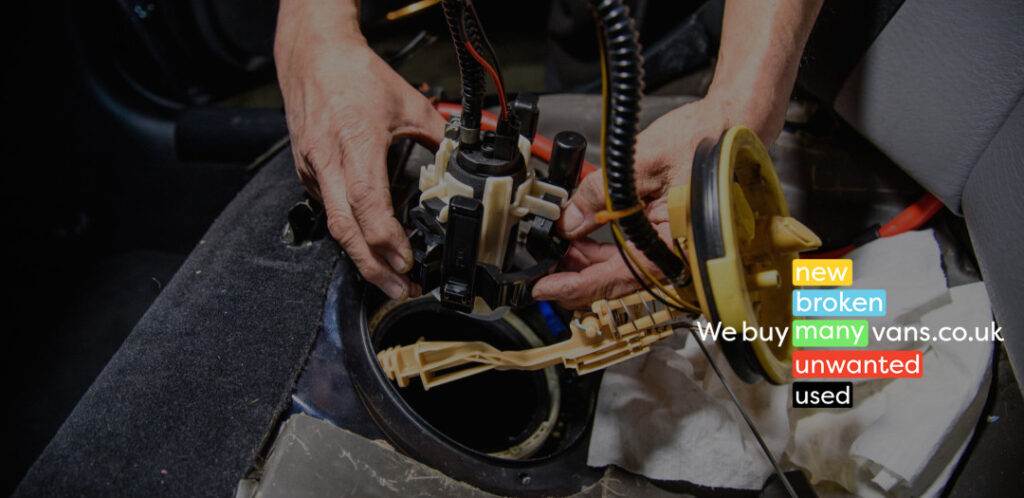
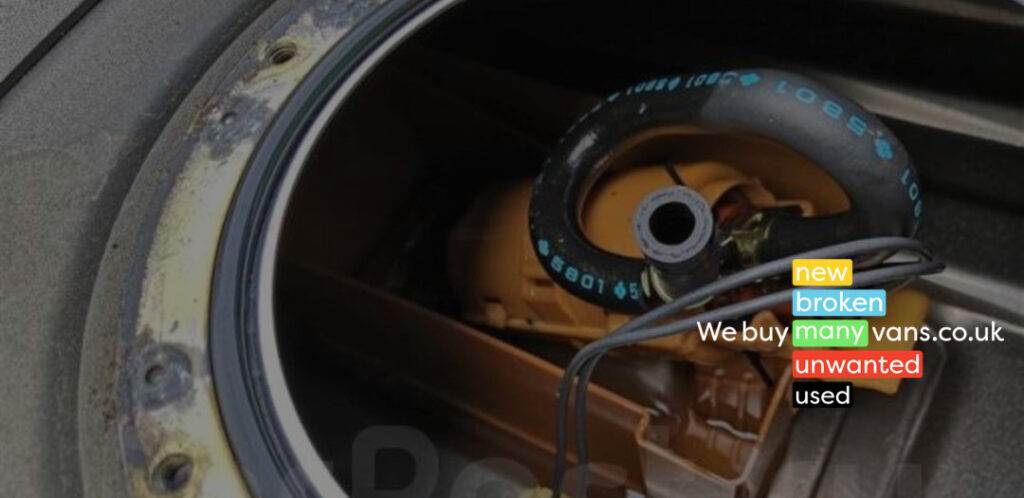
On another note, if you are considering selling your van, We Buy Many Vans offers a convenient option. They specialise in purchasing vans of different makes and models, regardless of their condition. We Buy Many Vans streamlines the selling process, providing a straightforward and efficient experience for van owners.
By submitting details about your van, you can receive a fair and competitive offer. Upon accepting the offer, We Buy Many Vans will handle the inspection, collection, and necessary paperwork, ensuring a hassle-free transaction. Whether your van is used, has mechanical issues, or has been involved in accidents, We Buy Many Vans can be a reliable choice for selling your van quickly and easily.
Symptoms of a Failing Fuel Pump
When your van’s fuel pump starts to fail, you may notice a few signs that something is wrong. One of the most common symptoms of a bad or failing fuel pump is engine hesitation during acceleration. This occurs because the fuel system isn’t delivering enough fuel to meet the engine’s needs.
Another sign of a failing fuel pump is difficulty starting your van, especially after it has been sitting for a while. If the fuel pump isn’t working correctly, it won’t be able to deliver enough fuel from the tank to the engine when you turn on the ignition. You might also hear strange noises coming from your van’s fuel tank if there is an issue with the fuel pump.
If you suspect that your van has a bad or failing fuel pump, it’s essential to have it inspected by a professional mechanic as soon as possible. Ignoring these symptoms can cause more significant problems down the road and potentially lead to costly repairs.
Common Causes of Fuel Pump Failure
Common Van Faults: One of the most common causes of fuel pump failure is contamination. When dirt and debris enter the fuel tank, they can clog up the fuel filter and cause damage to the fuel pump. Symptoms of a bad or failing fuel pump due to contamination include engine sputtering, difficulty starting, and decreased acceleration.
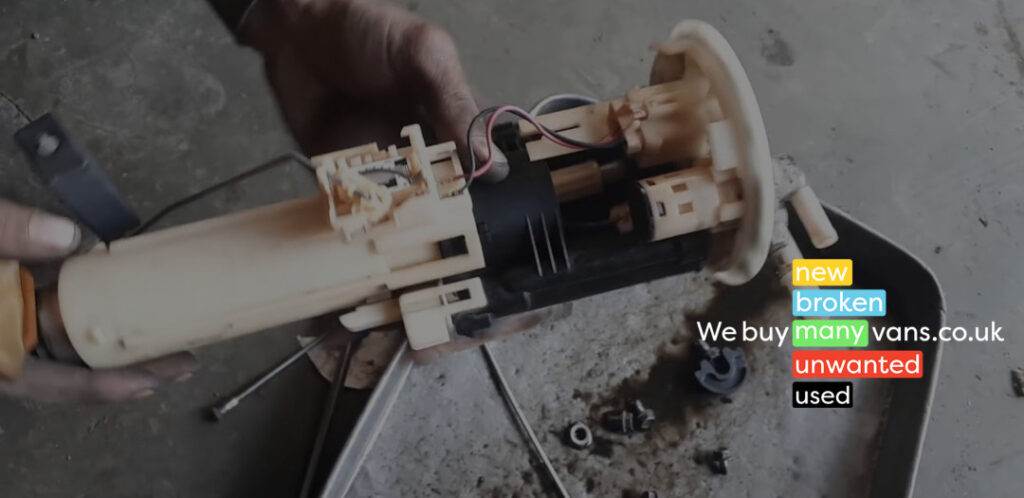
Another cause of fuel pump failure is overheating. This can occur when there is not enough fuel in the tank to keep the electric motor cool. Signs of a failing fuel system due to overheating include a burning smell coming from under the hood, engine stalling at high speeds, and increased fuel consumption.
A faulty electrical connection can also lead to a bad or failing fuel pump. If there is corrosion on any part of the wiring harness or if wires become disconnected, it can cause intermittent power loss that leads to poor performance or complete failure of the fuel pump. Symptoms of a bad electrical connection in your van’s fuel system may include hard starting, hesitation during acceleration, and rough idling.
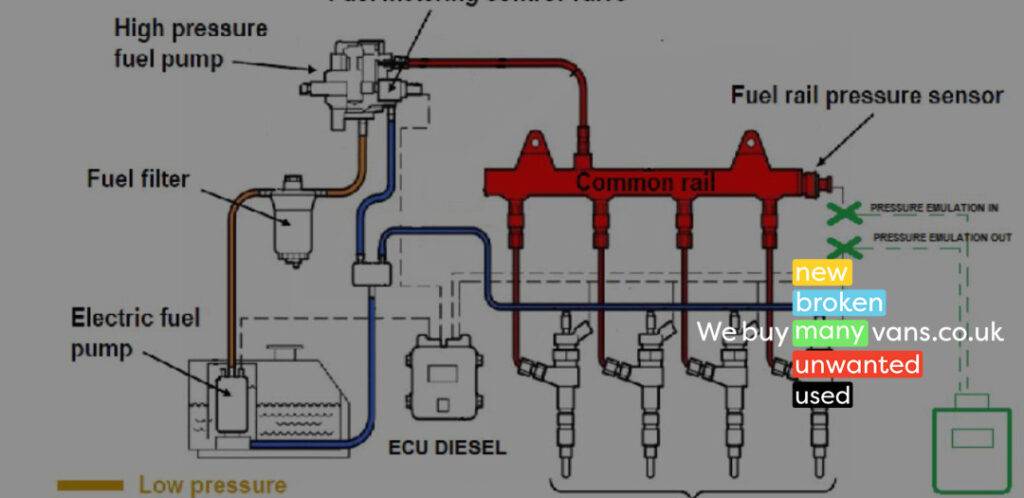
The Fuel System and Your Van
The fuel system in your van is responsible for delivering fuel from the fuel tank to the engine. A failing fuel pump can cause various symptoms, such as a sputtering engine or difficulty accelerating. These are signs of a bad fuel system and should not be ignored.
One common symptom of a bad fuel pump is low fuel pressure, which can result in poor performance and decreased fuel efficiency. Another sign of a failing fuel pump is when the engine suddenly stops running while driving. This could indicate that the fuel pump has completely failed.
If you suspect that you have a problem with your van’s fuel system or if you experience any symptoms of a bad fuel pump, it’s important to get it checked out by an experienced mechanic right away.
The cost to replace a faulty or damaged component can vary depending on several factors, including the make and model of your vehicle and the severity of the issue at hand.
Sell Your Van In Three Easy Steps
Hassle-Free Selling Process
01.
Get a quote
02.
Schedule a pickup
03.
Get paid
The Role of the Fuel Pump in Your Van's Performance
The fuel pump plays a crucial role in the performance of your van. It is responsible for delivering fuel from the tank to the engine, ensuring that it runs smoothly and efficiently. A bad fuel pump can cause various problems such as stalling, hesitation, and poor acceleration.
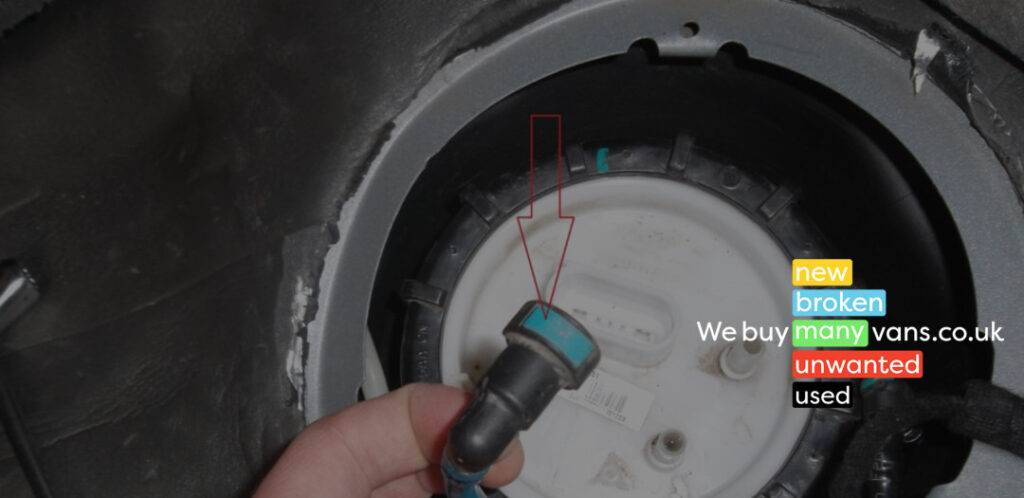
There are different types of fuel pumps available on the market, ranging from in-tank to inline pumps. In-tank fuel pumps are located within the fuel tank and are usually electrically powered. On the other hand, inline fuel pumps are installed outside of the tank and rely on mechanical power to deliver fuel to the engine.
A failing or bad fuel pump may exhibit symptoms such as sputtering at high speeds, difficulty starting or accelerating, decreased fuel mileage, and even complete engine failure. Regular maintenance of your van’s fuel system including replacing filters can help prevent these issues from occurring. Additionally, choosing a high-quality replacement part when necessary will ensure optimal performance for your vehicle’s specific needs.
Signs of a Bad Fuel System
One of the most common signs of a bad fuel system is a sputtering engine. This occurs when there isn’t enough fuel getting to the engine, which can be caused by a variety of issues within the fuel pump or fuel line. If you notice your van struggling to accelerate or experiencing sudden drops in power, it could be a sign that your fuel system needs attention.
Another symptom of a bad fuel system is difficulty starting your van. A failing electric fuel pump may not be able to deliver enough fuel from the fuel tank to start the engine, leaving you stranded and frustrated. It’s important to address this issue as soon as possible since it can quickly become worse and potentially lead to complete failure.
Modern vehicles are designed with sophisticated systems that monitor and regulate the amount of fuel being delivered to the engine. If these systems detect any issues within the fuel pump or lines, they will often trigger warning lights on your dashboard. These warnings should never be ignored since they’re an early indicator that something is wrong with your vehicle’s ability to receive adequate amounts of fuel for optimal performance.
Some signs of a bad fuel system include:
• Sputtering engine
• Struggling to accelerate or sudden drops in power
• Difficulty starting your van
• Warning lights on the dashboard indicating issues with the fuel pump or lines
The Cost of Fuel Pump Replacement
Replacing a faulty fuel pump can be an expensive repair. The cost of a new fuel pump motor and installation can range from £500 to £1,000 or more depending on the make and model of your van. However, ignoring signs of a failing fuel pump will only lead to more costly repairs in the long run.
The fuel pump is responsible for delivering fuel from the tank to the engine. If the flow of fuel is disrupted due to a failing fuel pump, it can cause low fuel pressure which may result in excess fuel consumption, reduced power output, and poor acceleration. A failing fuel pump will produce one or more signs that indicate it needs replacement.
One of the most common signs of a failing fuel system is difficulty starting your van. If you turn your key and nothing happens or if there’s delayed ignition after turning over several times, this could mean that your fuel pump cannot keep up with demand. Additionally, if you notice sputtering while driving at high speeds or sudden loss of power when accelerating uphill or towing heavy loads – these are all potential symptoms indicating that your inside-the-fuel-tank electrically driven device (fuel-pump) could be going bad soon enough!
The Importance of Fuel Efficiency
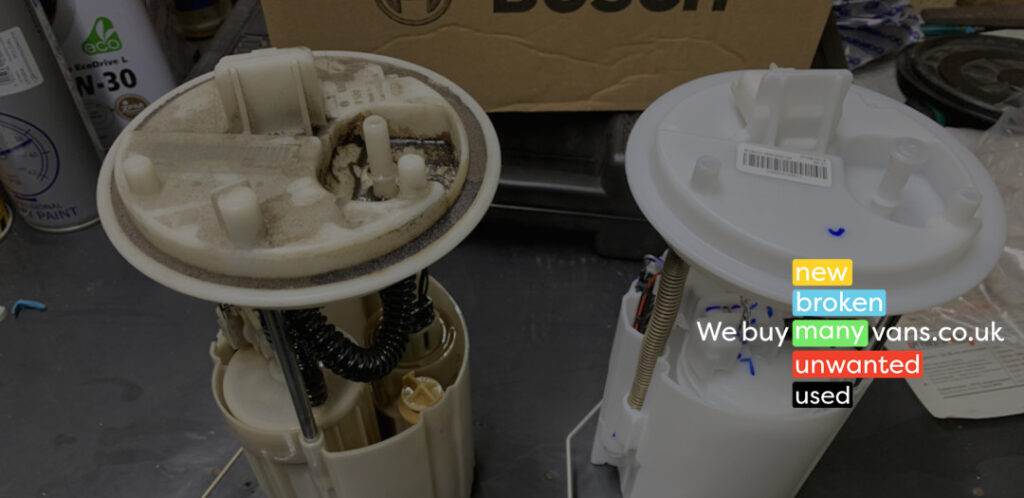
Efficient fuel usage is crucial for any vehicle, and it all starts with the fuel pump. The fuel pump’s job is to transport fuel from the fuel tank to the engine through a series of hoses and tubes. If there is an issue with your vehicle’s fuel pump, such as if the pump isn’t working properly or going bad, it can lead to a lack of fuel being delivered to the engine.
When your vehicle’s fuel pump can’t deliver enough fuel to keep up with demand, you may notice that your Van struggles when accelerating or driving uphill. This could be due to a mechanical issue within the fuel system, such as clogged filters or damaged hoses. In some cases, you may need to replace your fuel pump entirely in order for your vehicle to run smoothly again.
A faulty or failing fuel pump can also cause problems with overall efficiency by delivering more or less than necessary amounts of fuel into the engine. This not only affects how much money you spend on fuel but also contributes unnecessary pollution into our environment. To avoid this problem altogether, regular maintenance checks are recommended so that any potential issues with part of the fuel system (such as clogs) can be addressed before they turn into something more serious like a complete failure of one component like an in-tank Fuel Pump which will require replacement immediately
Inline Fuel Pumps
When it comes to fuel pumps, there are two main types: in-tank and inline. An inline fuel pump is located outside of the fuel tank and is responsible for supplying the engine with enough fuel. It works by drawing fuel from the fuel tank and pushing it through a series of lines until it reaches the engine.
One problem with an inline fuel pump is that if it fails, your van may not start or may experience other issues such as a sputtering engine or poor fuel efficiency. If you suspect a problem with your fuel pump, it’s important to have it checked out by a mechanic right away before any further damage occurs.
Unlike older mechanical fuel pumps, modern vans typically use electronic fuel injection systems which rely on precise amounts of fueloline being delivered to the engine at all times. An inline pump plays an essential role in this process by ensuring that just the right amount of fuel is pumped into the engine at any given moment.
To ensure that your van is getting enough fuel and running smoothly, regular maintenance checks are crucial. This includes checking for a clogged fuel filter which can cause problems with both in-tank and inline pumps as they will need to work harder to push sufficient amounts of fuel through blocked filters.
The Range of Fuel Pumps Available
The fuel pump is the component responsible for delivering fuel from the fuel tank to the engine. Without a functioning fuel pump, your van won’t be able to run properly. There are different types of fuel pumps available on the market today, each with its own unique features and benefits.
One type of fuel pump is an electric fuel pump mounted inside the fuel tank. This type of pump makes it easier to deliver fuel from the fuel tank to the engine with the fuel required by electronic fuel injection systems. It also helps prevent vapour lock during hot weather conditions.
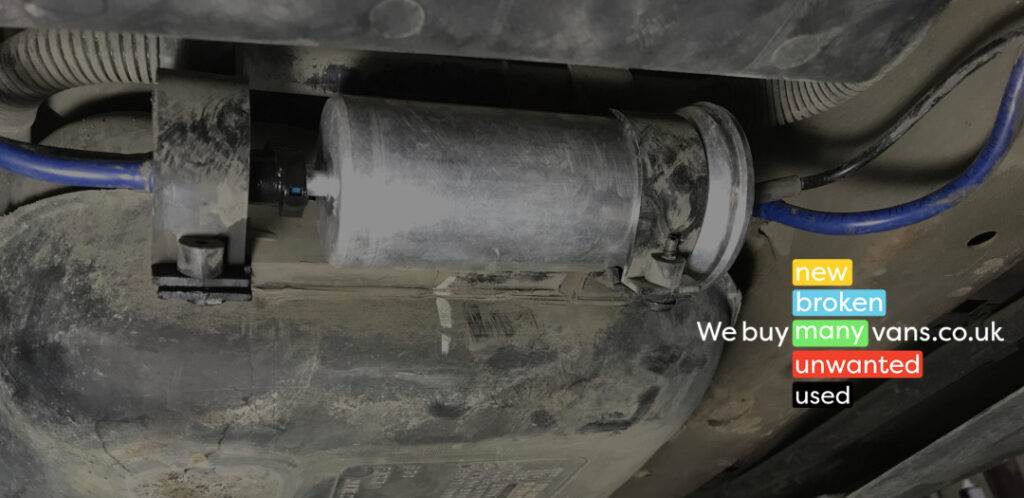
Another type of pump is an inline pump that’s installed outside of the fuel tank. Inline pumps are commonly used in older vehicles and can still be found in some newer models as well. They’re generally less expensive than in-tank pumps but may not provide as much pressure or flow rate.
If you need to replace your fuel pump, it’s important to consider factors such as cost and compatibility with your vehicle’s make and model. The cost to replace a worn-out or faulty fuel pump can vary depending on several factors including labour costs, materials needed, and location. However, investing in a high-quality replacement part will ensure that you have reliable performance for years to come.
Maintaining a Healthy Fuel System for Your Van
Regular maintenance is essential to keep your van’s fuel system running smoothly. Poor fuel quality can damage the fuel pump and other components of the system, leading to costly repairs. To avoid this, make sure you always fill up at reputable fuel stations that sell high-quality fuel.
If you suspect a problem with your van’s fuel system, don’t wait to get it checked out. A damaged pump sends less fuel to the engine, which can cause poor performance and reduced efficiency. If left unchecked, a bad pump can eventually fail completely and leave you stranded on the side of the road.
When it comes time for replacement, there are a range of fuel pumps available for different types of vans and engines. Choosing the right one is important for optimal performance and longevity of your vehicle’s fuel system. Regularly maintaining your van’s fuel system will help ensure that it continues to run efficiently and reliably for years to come.
Fuel pump problems Frequently Asked Questions
The common symptoms include engine sputtering, difficulty in starting the engine, and loss of power while driving.
The common causes of fuel pump failure include a clogged fuel filter, low fuel level, and overheating of the fuel pump.
The fuel system ensures that the engine receives the right amount of fuel for combustion, which affects the performance of the van.
The fuel pump is responsible for delivering fuel from the tank to the engine, which affects the van’s acceleration and power.
The signs include poor fuel efficiency, a decrease in engine performance, and increased emissions.
The cost varies depending on the make and model of the van, but it usually ranges from £500 to £1,500.
Fuel efficiency affects the running cost of the van, reduces harmful emissions, and ensures that the van operates optimally.
In-tank fuel pumps are located inside the fuel tank, while inline fuel pumps are located outside the tank, along the fuel line.
The range varies depending on the make and model of the van, but there are many aftermarket fuel pumps available for most vans.
You can maintain a healthy fuel system by regularly servicing the van, replacing the fuel filter, keeping the fuel tank filled, and using high-quality fuel.
Sell Your Van Today to We Buy Many Vans
Fuel pump problems can be a source of frustration for vehicle owners, causing issues with starting the engine, power loss, and even fuel leakage. It is crucial to address these problems promptly to prevent further damage. On another note, if you are facing fuel pump problems and considering selling your van, We Buy Many Vans provides a convenient solution.
We specialise in buying vans of various makes and models, including those with fuel pump issues.
With We Buy Many Vans, you can sell your van hassle-free, even if it has fuel pump problems. We offer a streamlined process, fair offers, and handle the necessary paperwork, ensuring a smooth transaction.
Don’t let fuel pump problems hold you back – We Buy Many Vans is ready to purchase your van, regardless of its condition.
Van Troubleshooting Guide: Common Problems from Fuel Pumps to MOT Failures
Here’s the list of van problems in order from most common to least common:
- Fuel Pump Problems
- ECU Problems
- Fuel Injector Problems
- Turbo Engine Problems
- DPF Problems
- Wiring Loom Problems
- Oil Pressure Problems
- Differential Problems
- MOT Failure Vans
- Timing Chain Problems
- Engine Warning Light
- Gearbox Failure
Please note that the order may vary depending on various factors such as the specific van model, maintenance practices, and driving conditions. This list is a general representation of common van problems but may not reflect the exact frequency of occurrence in all cases.